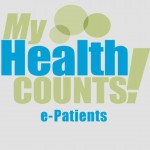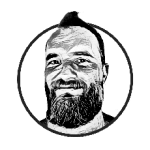
by Susannah Fox | May 2, 2013
Rebecka Sexton of the Center For Innovation at the Carilion Clinic in Roanoke, VA, emailed a great question and I’d like to share it more widely: We are working on a project here at Carilion on chronic diseases related to Population Health Management related to...
by Susannah Fox | Apr 26, 2013
What if kids were given the support to participate in and understand their own health care? – @savingcase For more health care dreams, please see: What if health care…? (Storify) Or any of my other #whatifhc posts.
by Susannah Fox | Apr 2, 2013
Four years ago this week, e-Patient Dave published, “Imagine someone had been managing your data, and then you looked,” and forever changed the national conversation about health data. I have described that post as an earthquake — a surprise to those...

by e-Patient Dave | Feb 18, 2013
This is the big update to our preview post last November. There’s a stage in a movement where it starts to get serious media coverage, and ours is coming of age. We’ve documented the progress: 2009: Susannah Fox was on NPR’s Morning...
by Susannah Fox | Feb 9, 2013
For over a year I’ve been the accidental manager of a community garden. All I did — I swear — is point out an open plot of land and people started pitching in, planting, asking friends to join them. All of a sudden we’d transformed a bare patch...
by e-Patient Dave | Jan 14, 2013
The report was issued overnight – see Susannah’s post here about it, media coverage (via Google), and blogs. I’m stealing some Susannah Fox thunder here because I can’t wait, and you should carve out a spot in your calendar...
by e-Patient Dave | Jan 2, 2013
Jan. 3 update: See important update at bottom – the site owner has identified himself. I’m extremely troubled by this development, so much so I’m stopping a tight-deadline task to write this. Let’s hope that as things unfold this will resolve....
by Susannah Fox | Dec 28, 2012
I was curious to see which were the top 5 posts, traffic-wise, and figured readers might be interested, too. Here’s the line-up: #1: Open knowledge saves lives. Oppose H.R. 3699! by Gilles Frydman The e-patients.net post with the highest number of views is a...

by e-Patient Dave | Dec 18, 2012
Most of our readers are familiar with the brief animated video introduced last summer by ONC, the health IT group in the US government. (If you haven’t seen it, you can watch it below, in long and short versions.) Now they’ve introduced a new poster (click...
by e-Patient Dave | Dec 4, 2012
A guest post by SPM member Marge Benham-Hutchins, PhD, RN, an assistant professor of nursing informatics at Texas Woman’s University. This is an email she sent me today, citing an online discussion of the appalling death in the Health Affairs column...
by Susannah Fox | Dec 1, 2012
Check out the documentary film, The Waiting Room, set in the emergency department of Highland Hospital in Oakland, CA. I wrote a post about a screening and discussion in DC last night and I’m hoping to get a report from tonight’s Cambridge, MA, event. If...

by Susannah Fox | Nov 22, 2012
A guest post from the Engage with Grace team… One of our favorite things we ever heard Steve Jobs say is… ‘If you live each day as if it was your last, someday you’ll most certainly be right.’ We love it for three reasons: It reminds all of us that living...
by Susannah Fox | Oct 5, 2012
(A cross-post from susannahfox.com) I had the great honor of being part of the first Medicine X conference at Stanford University last weekend. I presented a sneak preview of new survey results collected by the Pew Internet Project and the California HealthCare...
by e-Patient Dave | Sep 20, 2012
I was in Maine last night, speaking to the annual meeting of the excellent (and very E) Maine Quality Counts, which is one of the sixteen Aligning Forces for Quality (@AligningForces) communities, a project of the Robert Wood Johnson Foundation’s Pioneer...
by Joe Graedon | Sep 18, 2012
Following up on Susannah Fox’s superb summary of Medicine 2.0 Day One, I would like to offer some overview and comments about day two. This was my first Medicine 2.0 meeting. I had heard a lot about Gunther Eysenbach, MD, MPH, and his merry band of...
by Susannah Fox | Sep 5, 2012
This is a request for help finding people who have had bad experiences with online health resources. Let me first say that the internet is often a positive force in people’s lives. My own organization’s research can paint a rather rosy picture: teens are...
by e-Patient Dave | Jun 19, 2012
Susannah Fox’s post about this two years ago pretty much went over my head: I didn’t get how important it was. But at this month’s White House conference on patient-generated data, I met Nikolai Kirienko, who was the central specimen in her post. The...
by Susannah Fox | Jun 7, 2012
I tweeted a stat this week which garnered some sharp critiques: 1 in 4 U.S. internet users track their own health data online – @pewinternet pewrsr.ch/khtiMB #healthdata — SusannahFox (@SusannahFox) June 5, 2012 Please help me improve how Pew Internet...
by Susannah Fox | Mar 9, 2012
Stephen Wolfram’s essay, The Personal Analytics of My Life, begins: “One day I’m sure everyone will routinely collect all sorts of data about themselves.” A Pew Internet survey suggests we have a long way to go: a September 2010 survey found that 27% of internet users...
by Susannah Fox | Feb 25, 2012
I’m honored to post this essay by Wendy White, Founder & President of Siren Interactive: Thanks to the Pew Internet Project, we have a lot of data about ePatients. These empowered, engaged and educated patients (and families) are helping to bring about a...










Recent Comments